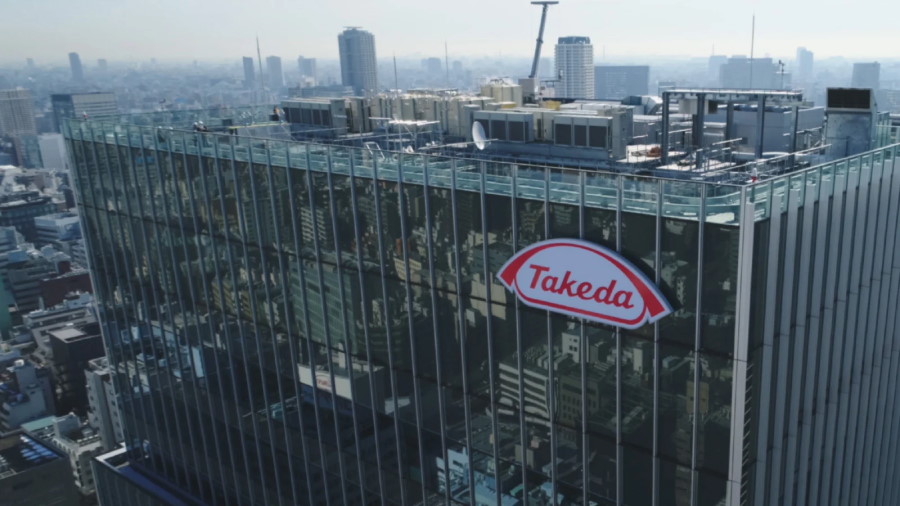Takeda gets a win for its Wave1 pipeline, as Exkivity nabs FDA approval

Takeda has had a run of bad luck with its Wave1 pipeline of new drug candidates of late, but can now celebrate a vestry after getting FDA approval for first-in-class lung cancer therapy Exkivity.
The US regulator has cleared the tyrosine kinase inhibitor (TKI) as a second-line treatment for locally advanced or metastatic non-small-cell lung cancer (NSCLC) patients whose tumours have EGFR exon20 insertion mutations, after first-line chemotherapy.
Takeda said that Exkivity (mobocertinib) is the first oral therapy specifically designed for people with this type of lung cancer.
Another drug targeting the mutation – Johnson & Johnson's Rybrevant (amivantamab) – was approved by the FDA in May but has to be administered by intravenous infusion.
There are several EGFR-targeting TKIs already on the market for NSCLC – including AstraZeneca's Tagrisso (osimertinib) and Roche's Tarceva (erlotinib) – but none are specifically approved to treat exon 20 insertions, giving Exkivity an opportunity to carve out its own niche.
Exon 20 insertions are seen in about 10% of patients who present with EGFR mutations, and 2% of NSCLC patients overall. Alongside the approval for Takeda's drug, the FDA has also green-lighted a companion diagnostic for exon 20 insertions developed by Thermo Fisher Scientific.
The accelerated FDA approval is based on the results of phase 1/2 data which showed that treatment with Exkivity shrank tumours in 28% of patients, and prevented the cancer from progressing for a median of seven months.
"EGFR Exon 20 insertion+ NSCLC is an underserved cancer that we have been unable to target effectively with traditional EGFR TKIs," said Pasi Jänne of Dana Farber Cancer Institute, who was involved in the clinical trials of the drug.
Exkivity is a key part of Takeda's Wave1 pipeline, a clutch of new therapies that have the potential to be approved by fiscal year 2024 that it has said could generate $10 billion in combined peak sales.
The approval comes shortly after Takeda revealed that its NEDD8-activating enzyme inhibitor pevonedistat fluffed its lines in a phase 3 trial in myelodysplastic syndromes and acute myeloid leukaemia (AML), denting the programme's prospects.
Meanwhile, in July the FDA missed its review deadline for Takeda's Eohilia (budesonide oral suspension) treatment for the inflammatory disease eosinophilic oesophagitis, while the EMA extended the review period for TAK-003, its live attenuated tetravalent vaccine for prevention of dengue disease.
Near-term attention now shifts to maribavir for cytomegalovirus infections in transplant patients, which is due to be discussed at an FDA advisory committee meeting on 7 October.
Takeda has previously said that Exkivity could make up to $600 million in peak sales, if it also gets approved for first-line exon20-positive NSCLC, with blockbuster potential for maribavir.












